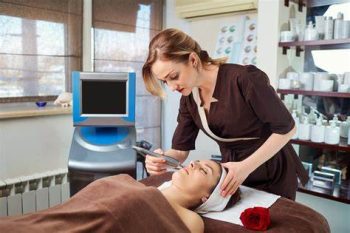 After the CDC issued its 2016 Opioid Prescribing Guideline, which focused on recommendations for primary care physicians, many physicians greatly limited prescribing opioids. This was in response to the opioid epidemic in our country which had an impact on reducing opioid abuse. However, it also may have left patients undertreated for pain given the 2016 guideline’s emphasis on not prescribing opioids. In November 2022, the CDC issued updated guidance for a broader group of clinicians. This blog series provides an overview of the more-than-60-page CDC guidance. This first blog will provide an overview of what the guidance is intended to accomplish and how it is presented. Our attorneys are experienced in advising healthcare businesses and pain management practices. If you have pain management prescribing questions or would like to discuss this blog post, you may contact our healthcare and business law firm at (404) 685-1662 (Atlanta) or (706) 722-7886 (Augusta), or by email, info@hamillittle.com. You may also learn more about our law firm by visiting www.hamillittle.com.
After the CDC issued its 2016 Opioid Prescribing Guideline, which focused on recommendations for primary care physicians, many physicians greatly limited prescribing opioids. This was in response to the opioid epidemic in our country which had an impact on reducing opioid abuse. However, it also may have left patients undertreated for pain given the 2016 guideline’s emphasis on not prescribing opioids. In November 2022, the CDC issued updated guidance for a broader group of clinicians. This blog series provides an overview of the more-than-60-page CDC guidance. This first blog will provide an overview of what the guidance is intended to accomplish and how it is presented. Our attorneys are experienced in advising healthcare businesses and pain management practices. If you have pain management prescribing questions or would like to discuss this blog post, you may contact our healthcare and business law firm at (404) 685-1662 (Atlanta) or (706) 722-7886 (Augusta), or by email, info@hamillittle.com. You may also learn more about our law firm by visiting www.hamillittle.com.
First, the updated guidance “is intended for clinicians who are treating outpatients aged ≥18 years with acute (duration of <1 month), subacute (duration of 1–3 months), or chronic (duration of >3 months) pain, and excludes pain management related to sickle cell disease, cancer-related pain treatment, palliative care, and end-of-life care.” Continue reading ›
 Total Health Law Blog
Total Health Law Blog


 As a healthcare and business law firm, we have many clients who either are or wish to hire nurse practitioners around the country. Each state has very specific, and often complicated, laws and rules governing nurse practitioner practices. In 2020, Florida introduced a new law allowing certain nurse practitioners to practice autonomously, which Florida has sense been expanding on and clarifying. Herein is an overview of Florida’s autonomous practice law. If you have scope of practice or other
As a healthcare and business law firm, we have many clients who either are or wish to hire nurse practitioners around the country. Each state has very specific, and often complicated, laws and rules governing nurse practitioner practices. In 2020, Florida introduced a new law allowing certain nurse practitioners to practice autonomously, which Florida has sense been expanding on and clarifying. Herein is an overview of Florida’s autonomous practice law. If you have scope of practice or other  Our healthcare and business law firm previously published a blog post on the
Our healthcare and business law firm previously published a blog post on the  Our healthcare and business law firm works with many providers and other allied health professionals who are beginning their journeys of opening a Medical Spa. Medical Spas have been
Our healthcare and business law firm works with many providers and other allied health professionals who are beginning their journeys of opening a Medical Spa. Medical Spas have been  Our healthcare and business law firm works with many providers and other allied health professionals who are beginning their journeys of opening a Medical Spa. Medical Spas have been
Our healthcare and business law firm works with many providers and other allied health professionals who are beginning their journeys of opening a Medical Spa. Medical Spas have been 
 Our healthcare and business law firm works with many providers and other allied health professionals who are beginning their journeys of opening a Medical Spa. Medical Spas have been
Our healthcare and business law firm works with many providers and other allied health professionals who are beginning their journeys of opening a Medical Spa. Medical Spas have been  This is the second post in a series related to the Pretrial Diversion Program in Georgia. The first post provided an
This is the second post in a series related to the Pretrial Diversion Program in Georgia. The first post provided an  Our healthcare and business law firm works with many providers and other professionals who have been arrested and charged with misdemeanors. Our clients will, of course, hire criminal defense counsel to handle the criminal proceedings but professionals generally hire our firm navigate the professional consequences of an arrest. Many of our clients are first time offenders who are presented with the option of participating in a pretrial diversion program. Whether to participate in such a program should be discussed with criminal defense counsel. This is the first blog post of two on this subject, and it focuses on providing an overview of the Pretrial Diversion Programs in Georgia and the potential impact on a successful participant’s criminal record. The second post will focus on how successful completion may impact a participant’s professional responsibilities thereafter responding to questions relating to the offense on employment, licensing, and credentialing applications. If you have questions regarding this blog post or
Our healthcare and business law firm works with many providers and other professionals who have been arrested and charged with misdemeanors. Our clients will, of course, hire criminal defense counsel to handle the criminal proceedings but professionals generally hire our firm navigate the professional consequences of an arrest. Many of our clients are first time offenders who are presented with the option of participating in a pretrial diversion program. Whether to participate in such a program should be discussed with criminal defense counsel. This is the first blog post of two on this subject, and it focuses on providing an overview of the Pretrial Diversion Programs in Georgia and the potential impact on a successful participant’s criminal record. The second post will focus on how successful completion may impact a participant’s professional responsibilities thereafter responding to questions relating to the offense on employment, licensing, and credentialing applications. If you have questions regarding this blog post or  Our healthcare and business law firm works with many providers at all stages of employment, including physicians taking their first jobs after training, becoming partners at practices, and selling their practices and retiring. One consistently stressful time for all providers is resigning from a practice. Through our experience, we have learned many tips to assist providers in exiting employment as smoothly as possible. If you have questions regarding this blog post or
Our healthcare and business law firm works with many providers at all stages of employment, including physicians taking their first jobs after training, becoming partners at practices, and selling their practices and retiring. One consistently stressful time for all providers is resigning from a practice. Through our experience, we have learned many tips to assist providers in exiting employment as smoothly as possible. If you have questions regarding this blog post or